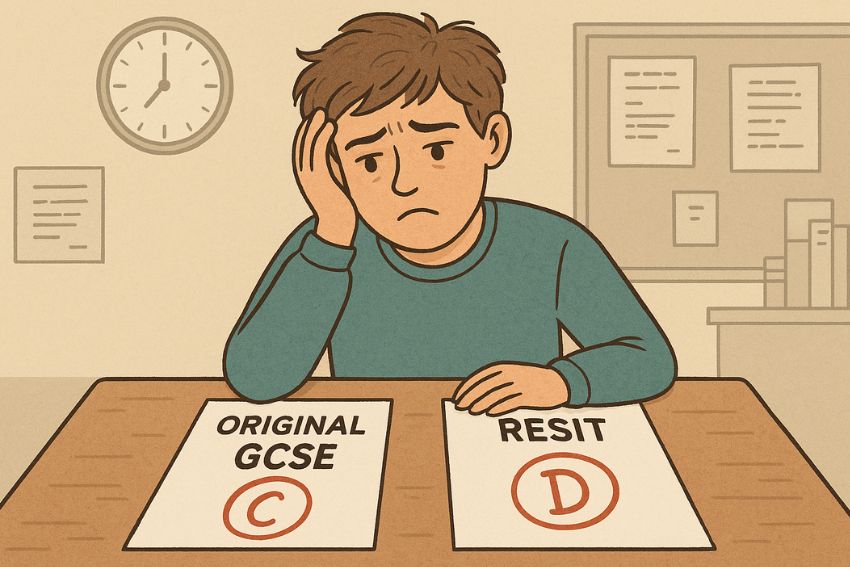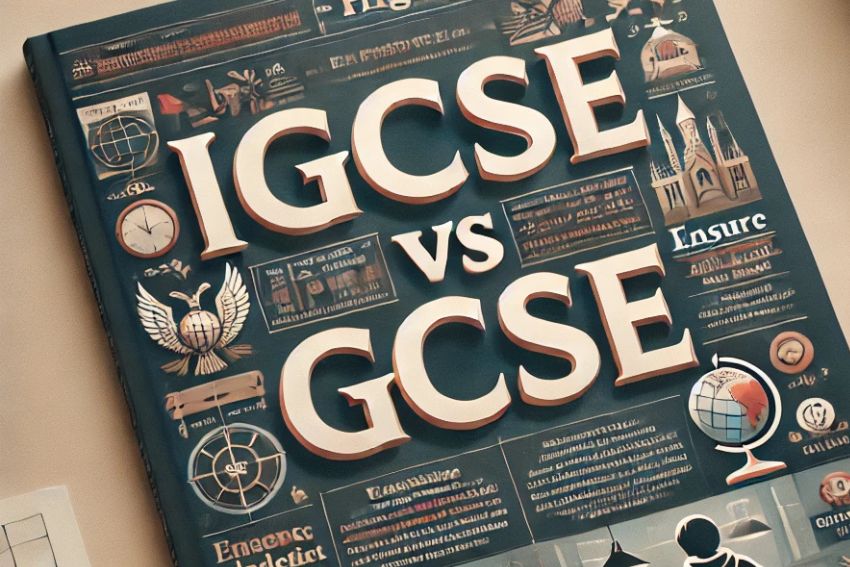The International General Certificate of Secondary Education (IGCSE) is a widely recognised qualification for students aged 14 to 16. It prepares you for further education, whether that’s A Levels, the IB, or other routes. One of the most exciting and important IGCSE subjects is Physics. IGCSE Physics helps you understand how the world works, from gravity and motion to electricity and energy.
In this blog, we’ll guide you through everything you need to succeed in IGCSE Physics. We’ll go through the syllabus, explain how the exams work, and share useful study tips. You’ll also learn how to handle hard topics, use past papers effectively, and get the most out of your revision.
Overview of IGCSE Physics Syllabus
Now that you know what IGCSE Physics is all about, let’s take a closer look at what you’ll actually study. The syllabus is split into two levels: Core and Extended. The Core level covers the essential concepts, while the Extended level goes into more detail and includes extra topics. Across both levels, you’ll explore some interesting areas of physics, including:
| Mechanics | motion, forces, and energy |
| Thermal Physics | heat transfer, temperature, and particle theory |
| Waves | sound, light, and the electromagnetic spectrum |
| Electricity and Magnetism | circuits, current, and magnetic fields |
| Atomic Physics | structure of atoms and radioactivity |
| Space Physics | planets, gravity, and the universe |
Both Edexcel and Cambridge exam boards follow similar structures but with slight differences in content and style.
Edexcel IGCSE Physics: focuses on clear topic divisions and includes questions that test both theory and practical understanding. You’ll develop skills like applying equations, interpreting graphs, and explaining physical processes using scientific terms.
Cambridge IGCSE Physics: places more focus on experimental skills and scientific enquiry. Alongside the main topics, you’ll be expected to analyse data and understand how science works in everyday life. The questions often challenge you to think critically and explain your reasoning clearly.
Exam Format: What to Expect
Like we’ve already mentioned both exam boards are different, but they assess similar knowledge and skills:
Cambridge IGCSE Physics Exam Structure
If you’re sitting the Cambridge IGCSE, you’ll usually take:
1 Paper (Multiple Choice) – 40 questions testing your understanding across the syllabus.
3 Paper (Theory Paper) – structured questions requiring explanations, calculations, and diagrams.
5 or 6 Paper (Practical Skills) – Paper 5 tests hands-on practical skills, while Paper 6 is a written alternative to practicals.
Edexcel IGCSE Physics Exam Structure
With Edexcel IGCSE Physics, you’ll typically sit two papers:
Paper 1 – covers all topics for Core students.
Paper 2 – includes additional questions for those entered for the Extended level
Each paper includes a mix of multiple choice, short-answer, and longer structured questions.
Using IGCSE Physics Past Papers to Revise
Once you’re familiar with the exam format, it’s time to practise and there’s no better way than using IGCSE Physics past papers. Past papers give you a real feel for the types of questions you’ll face. You’ll learn how topics are tested, how questions are worded, and how to manage your time in an actual exam setting. They’re also great for spotting patterns in what comes up regularly.
Where to find reliable past papers? you can find it on official websites of Edexcel and Cambridge (CIE). For you to use them effectively, here is some tips:
- Start early: Don’t wait until the last minute. Use papers as part of your regular revision.
- Use a timer: Practise answering under exam conditions. It’ll help build your confidence.
- Mark your answers: Check your responses using the official mark schemes.
- Learn from mistakes: Write down where you went wrong and revisit that topic.
- Look for command words: Words like “explain”, “calculate”, or “describe” tell you what kind of answer is expected.
Mark schemes show you how points are awarded. Even if your answer is correct, missing a keyword or skipping a step might lose marks. So, take time to understand what examiners want.

Dealing with Common Difficulties in Physics
It’s completely normal to find some parts of Physics challenging. Many students struggle with topics like circuits, forces, or energy calculations at first. But with the right approach, even the trickiest concepts can start to make sense.
Breaking Down Tough Topics
Some Physics topics are naturally harder to grasp, especially abstract ones like:
Electric circuits: knowing how current, voltage, and resistance interact.
Forces and motion: understanding Newton’s laws or calculating acceleration.
Energy changes: working out transfers between kinetic, potential, and thermal energy.
To get past the confusion, break topics into smaller parts. Use diagrams, draw out processes step by step, and don’t rush. Revisiting the same topic more than once helps you to memorise it better.
Simple Problem Solving Tips
- 1) Underline key parts of the question, especially values, units, and command words.
- 2) Write down formulas before solving anything.
- 3) Check units, converting between metres, centimetres, and seconds can change everything.
- 4) Don’t skip steps, even rough working can lead you to the right answer.
If You Struggle With Maths in Physics
Many Physics questions involve equations, and it’s normal to find the maths side hard. To build confidence, practise simple calculations regularly, such as rearranging formulas. Get comfortable using your calculator so you can work quickly and accurately in exams. It also helps to memorise key formulas early, so you’re not relying too much on the formula sheet. Watching short videos or using revision guides can show you how to solve problems step by step. Remember, Physics is all about understanding the more you practise, the easier it gets.
Understanding Practical Work in IGCSE Physics
Practical work is an important part of learning physics, even if your exam is mostly written. It helps you see how the theory you learn applies in real-life situations. Both Edexcel and Cambridge IGCSE Physics include questions that test your understanding of experiments, whether you’ve done them in school or not.
You’ll need to know how to set up simple experiments, use basic lab equipment, and collect results accurately. Common tasks include measuring voltage and current, timing falling objects, and investigating temperature changes. You might also be asked to draw graphs, describe methods, or spot sources of error.
To do well, focus on understanding the purpose behind each experiment. Don’t just memorise steps, think about why each part matters. Practise describing results clearly, use correct units, and make sure your diagrams are neat and labelled. The more familiar you are with practical tasks, the easier it will be to answer these questions in your exam.
Conclusion
IGCSE Physics can seem challenging at first, but with the right approach, it becomes much easier to manage. By understanding the syllabus, practising with past papers, and breaking down difficult topics, you’ll start to feel more confident in your abilities.
For example, if you need any extra help, online GCSE Physics tutors are here to help you and working with a qualified tutor can make a big difference. A tutor can explain difficult topics in a way that makes sense, help you build strong study habits, and guide you through exam preparation step by step. Good luck!








